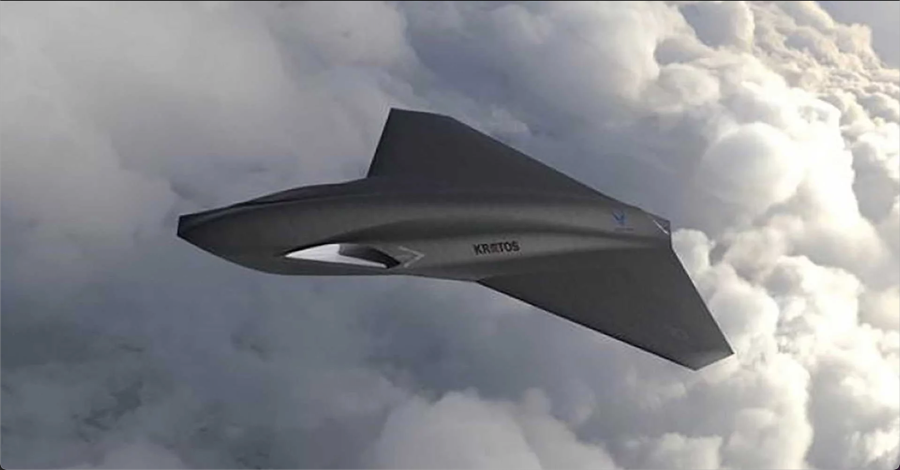Kratos Defense has made significant strides in its development of the Thanatos stealth Uncrewed Combat Air Vehicle (UCAV), recently confirming successful test flights conducted in the past few months. Although specific details regarding these trials remain undisclosed, Kratos’ President of Unmanned Systems Division, Steve Fendley, emphasized that the primary focus is no longer on testing the aircraft’s basic flying capabilities. Instead, the emphasis has shifted to verifying whether the integrated systems can fulfill designated mission requirements. This development is particularly meaningful given the growing interest and funding in unmanned systems within the defense sector.
The Thanatos UCAV was officially unveiled by Kratos in November 2023, when CEO Eric Demarco expressed the company’s intent to secure a contract for the aircraft within a year. The design features a streamlined single-engine configuration, characterized by two inlets and a single exhaust, demonstrating a commitment to stealth with no visible vertical tails or horizontal stabilizers. This design choice aligns with modern advancements in military aviation, where stealth capabilities are increasingly becoming a crucial factor in combat operations. Companies like Kratos are pushing the boundaries of traditional aerospace engineering to meet the challenges posed by potential adversaries.
In terms of potential buyers, Kratos has indicated an interest in securing a contract with an undisclosed customer, with the U.S. Air Force estimated to be a likely candidate due to its Collaborative Combat Aircraft (CCA) program. Such programs center around developing integrated networks of manned and unmanned systems working together to enhance combat effectiveness. The Air Force’s interest in cutting-edge unmanned capabilities suggests that the Thanatos could serve a pivotal role in future combat scenarios, aligning with strategic military objectives that prioritize advanced drone technology.
The backdrop of these developments includes growing concerns over unidentified drone sightings across New Jersey and New York, referred to as ‘dronegate.’ Reports of these mysterious aircraft have raised eyebrows, fueling speculation about the existence of advanced military drones being tested or deployed in secret. The presence of such UCAVs, like Kratos’ Thanatos, has the potential to reframe public understanding of these sightings; rather than of extraterrestrial origin, they may stem from classified military technology.
Kratos’ advancements are not only a testament to the company’s innovative engineering and design capabilities but also reflect a broader trend within the defense industry towards automation and unmanned systems. As military strategies evolve alongside technological advancements, the demand for stealth, agility, and the ability to conduct operations without the need for human pilots is likely to increase. Consequently, developments like those seen with the Thanatos are part of a crucial pivot in U.S. defense capabilities, emphasizing the importance of modern warfare tactics.
In summary, with the successful testing of the Thanatos stealth UCAV and its potential role within U.S. military operations, Kratos Defense stands at the forefront of innovation in unmanned aerial technology. Questions about national defense and aerospace strategy continue to blend with public intrigue, particularly in light of reported unidentified drone activity. As advancements in aircraft design and function progress, they are poised to redefine engagement in combat, solidifying the critical role of unmanned systems in shaping the future of aerial warfare.

